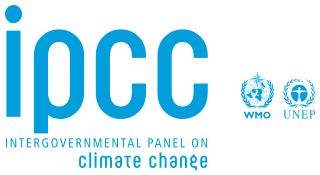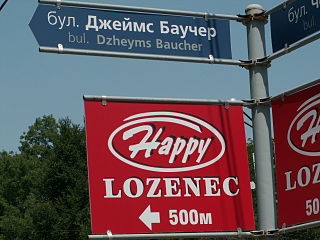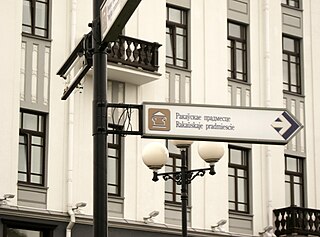Related Research Articles

The Intergovernmental Panel on Climate Change (IPCC) is an intergovernmental body of the United Nations. Its job is to advance scientific knowledge about climate change caused by human activities. The World Meteorological Organization (WMO) and the United Nations Environment Programme (UNEP) established the IPCC in 1988. The United Nations endorsed the creation of the IPCC later that year. It has a secretariat in Geneva, Switzerland, hosted by the WMO. It has 195 member states who govern the IPCC. The member states elect a bureau of scientists to serve through an assessment cycle. A cycle is usually six to seven years. The bureau selects experts to prepare IPCC reports. It draws the experts from nominations by governments and observer organizations. The IPCC has three working groups and a task force, which carry out its scientific work.

The United Nations Economic and Social Council is one of the six principal organs of the United Nations, responsible for coordinating the economic and social fields of the organization, specifically in regards to the fifteen specialised agencies, the eight functional commissions, and the five regional commissions under its jurisdiction.

The United Nations Conference on Trade and Development (UNCTAD) is an intergovernmental organization within the United Nations Secretariat that promotes the interests of developing countries in world trade. It was established in 1964 by the United Nations General Assembly (UNGA) and reports to that body and the United Nations Economic and Social Council (ECOSOC). UNCTAD is composed of 195 member states and works with nongovernmental organizations worldwide; its permanent secretariat is in Geneva, Switzerland.
Devanagari is an Indic script used for many Indo-Aryan languages of North India and Nepal, including Hindi, Marathi and Nepali, which was the script used to write Classical Sanskrit. There are several somewhat similar methods of transliteration from Devanagari to the Roman script, including the influential and lossless IAST notation. Romanized Devanagari is also called Romanagari.
ISO 15919 is one of a series of international standards for romanization by the International Organization for Standardization. It was published in 2001 and uses diacritics to map the much larger set of consonants and vowels in Brahmic and Nastaliq scripts to the Latin script.
The romanization of Ukrainian, or Latinization of Ukrainian, is the representation of the Ukrainian language in Latin letters. Ukrainian is natively written in its own Ukrainian alphabet, which is based on the Cyrillic script. Romanization may be employed to represent Ukrainian text or pronunciation for non-Ukrainian readers, on computer systems that cannot reproduce Cyrillic characters, or for typists who are not familiar with the Ukrainian keyboard layout. Methods of romanization include transliteration and transcription.
A raion is a type of administrative unit of several post-Soviet states. The term is used for both a type of subnational entity and a division of a city. The word is from the French rayon, and is commonly translated as "district" in English.

The United Nations Statistical Commission (StatCom) is a Functional Commission of the United Nations Economic and Social Council, established in 1947. The Statistical Commission oversees the work of the United Nations Statistics Division (UNSD). Its 24 member states are elected by the Economic and Social Council on the basis of the following geographical distribution: African states (5), Asian States (4), Eastern European States (4), Latin American and Caribbean States (4), Western European and other States (7). Since July 1999 the Commission meets every year. As set forth by the Economic and Social Council, in the terms of reference, the Commission shall assist the Council:
Romanization of Greek is the transliteration (letter-mapping) or transcription (sound-mapping) of text from the Greek alphabet into the Latin alphabet.

Romanization of Bulgarian is the practice of transliteration of text in Bulgarian from its conventional Cyrillic orthography into the Latin alphabet. Romanization can be used for various purposes, such as rendering of proper names and place names in foreign-language contexts, or for informal writing of Bulgarian in environments where Cyrillic is not easily available. Official use of romanization by Bulgarian authorities is found, for instance, in identity documents and in road signage. Several different standards of transliteration exist, one of which was chosen and made mandatory for common use by the Bulgarian authorities in a law of 2009.

The Ukrainian Latin alphabet is the form of the Latin script used for writing, transliteration and retransliteration of Ukrainian.
The Kyrgyz language is written in the Kyrgyz alphabet, a modification of Cyrillic. There is no commonly accepted system of romanization for Kyrgyz, i.e. a rendering of Kyrgyz in the Latin alphabet. For geographic names, the Kyrgyz government adopted the BGN/PCGN romanization system.
The romanization of Khmer is a representation of the Khmer (Cambodian) language using letters of the Latin alphabet. This is most commonly done with Khmer proper nouns, such as names of people and geographical names, as in a gazetteer.
Romanization or Latinization of Belarusian is any system for transliterating written Belarusian from Cyrillic to the Latin alphabet.
GOST 16876-71 is a romanization system devised by the National Administration for Geodesy and Cartography of the Soviet Union. It is based on the scientific transliteration system used in linguistics. GOST was an international standard so it included provision for a number of the languages of the Soviet Union. The standard was revised twice in 1973 and 1980 with minor changes.

The Antarctic Place-names Commission was established by the Bulgarian Antarctic Institute in 1994, and since 2001 has been a body affiliated with the Ministry of Foreign Affairs of Bulgaria.

Instruction on transliteration of Belarusian geographical names with letters of Latin script is an official standard of Romanization of Belarusian geographical names.

Romanization of Georgian is the process of transliterating the Georgian language from the Georgian script into the Latin script.

A district or raion in Belarus is the second-level administrative division in the country which are subordinate to regions.

The United Nations Group of Experts on Geographical Names (UNGEGN) is one of the nine expert groups of the United Nations Economic and Social Council (ECOSOC) and deals with the national and international standardization of geographical names. Every five years they hold the UNGEGN conference. The UNGEGN also publishes international guidelines.
References
- ↑ United Nations Documents Index United Nations Staff - 2003 -... of the United States/Canada Division E/CONF 94/CRP 44 (22111) p1755 —Report of the Working Group on Romanization ... 6/2002/6 (2.2523) —Report on the current status of the United Nations Romanization Systems for Geographical Names .
- ↑ Working Group on Romanization Systems.WGRS website. United Nations Group of Experts on Geographical Names.